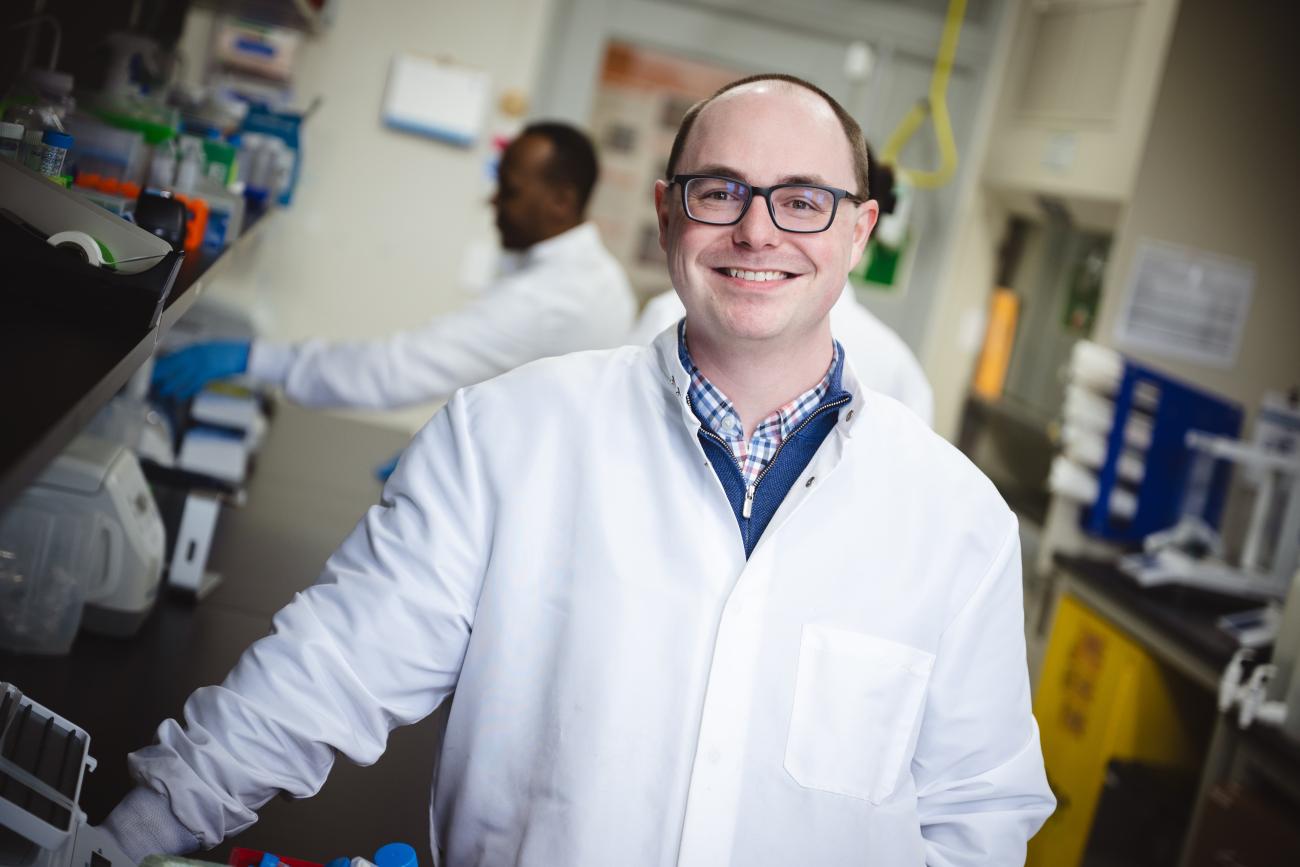Dylan Shropshire receives Kaufman New Investigator Award to support research
Funding will support research into Wolbachia bacteria and its potential to fight mosquito-borne diseases worldwide
Dylan Shropshire, assistant professor of biological sciences, has been named a recipient of a New Investigator Award from the Charles E. Kaufman Foundation.
The two-year, $150,000 grant will support Shropshire's research into endosymbiont-host relationships by examining how Wolbachia bacteria switch hosts.
Wolbachia is the most common endosymbiont, a bacterium that lives inside an organism host, found in more than half of all insect species. Shropshire hypothesizes that Wolbachia host switching occurs through shared food and proposes to develop a predictive framework to determine when and where host transfers occur. Through this research, he seeks to understand what processes support or prevent new endosymbiont-host relationships from forming. If successful, the research may improve methods for introducing Wolbachia into new insect species to protect humans, crops and endangered animals from diseases spread by mosquitoes, such as dengue and Zika.
Shropshire's prior work has focused on understanding the genetic, mechanistic and evolutionary underpinnings of traits that govern Wolbachia's widespread prevalence. Many Wolbachia strains impact their host's reproduction in several ways to encourage their spread across generations. Among these, cytoplasmic incompatibility is the most common, causing eggs to die when Wolbachia-bearing males mate with uninfected females. Females with Wolbachia remain compatible. Additionally, research has revealed that Wolbachia, despite traditionally being considered maternally inherited bacteria, moves rapidly across host species.
The grant is one of four new investigator awards given by the Kaufman Foundation, which is part of the Pittsburgh Foundation, to support cutting-edge research at institutions across Pennsylvania. In total, $2 million was awarded to support research at Bucknell University, Carnegie Mellon University, Drexel University, Lafayette College, Lehigh University, Penn State University, the University of Pennsylvania and the University of Pittsburgh.
Kaufman, a former chemist, died in September 2010, leaving his estate of almost $50 million to the Pittsburgh Foundation. Approximately $40 million was assigned to the Charles E. Kaufman Foundation to support new research initiatives at Pennsylvania institutions of higher learning in chemistry, biology and physics "for achievement in and contribution to the field and humanity."

